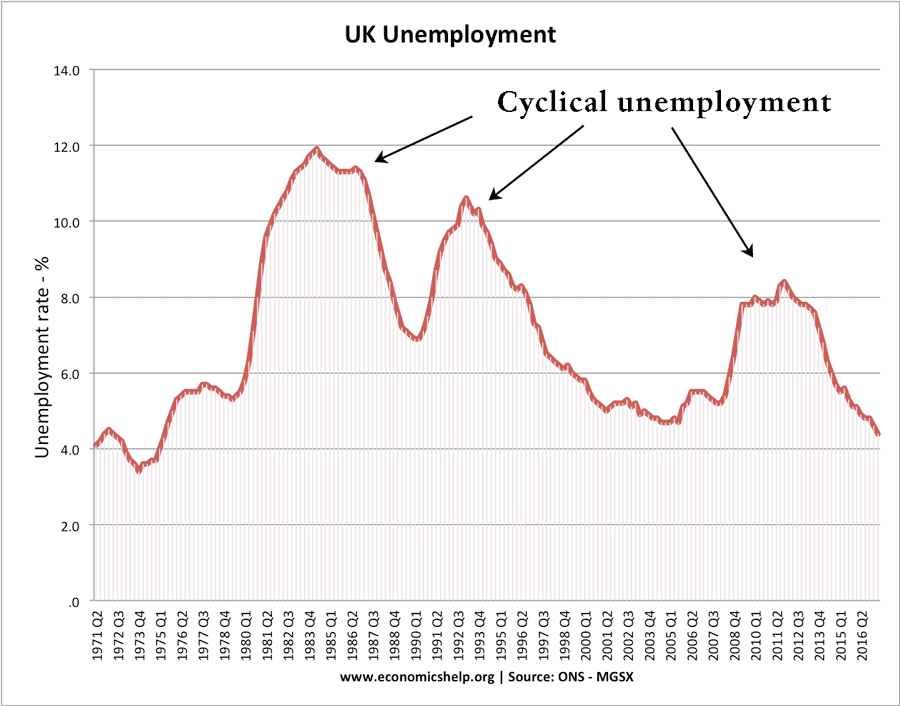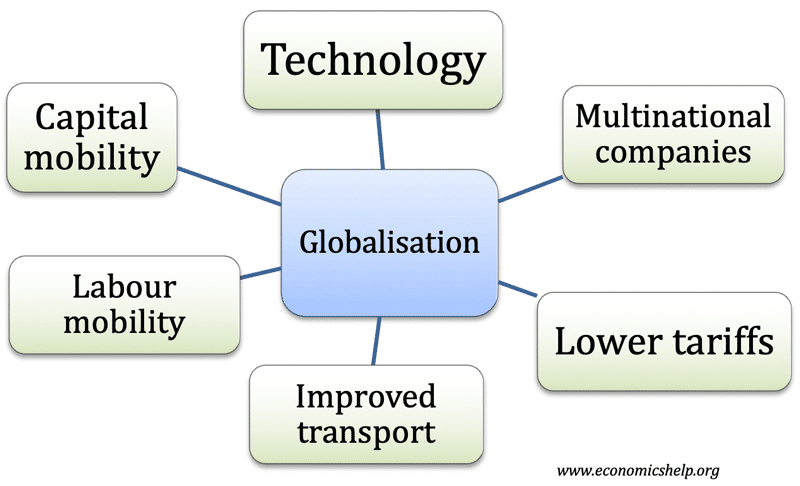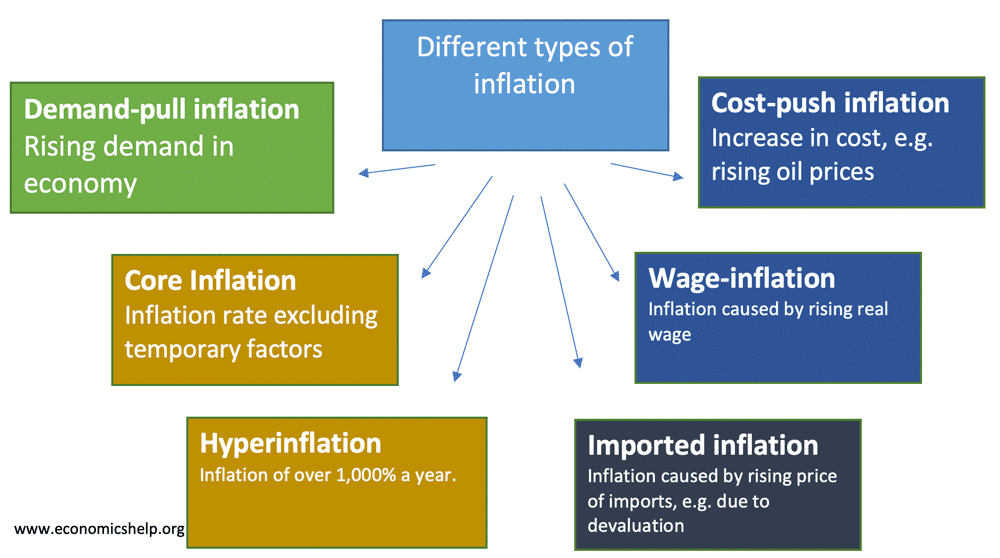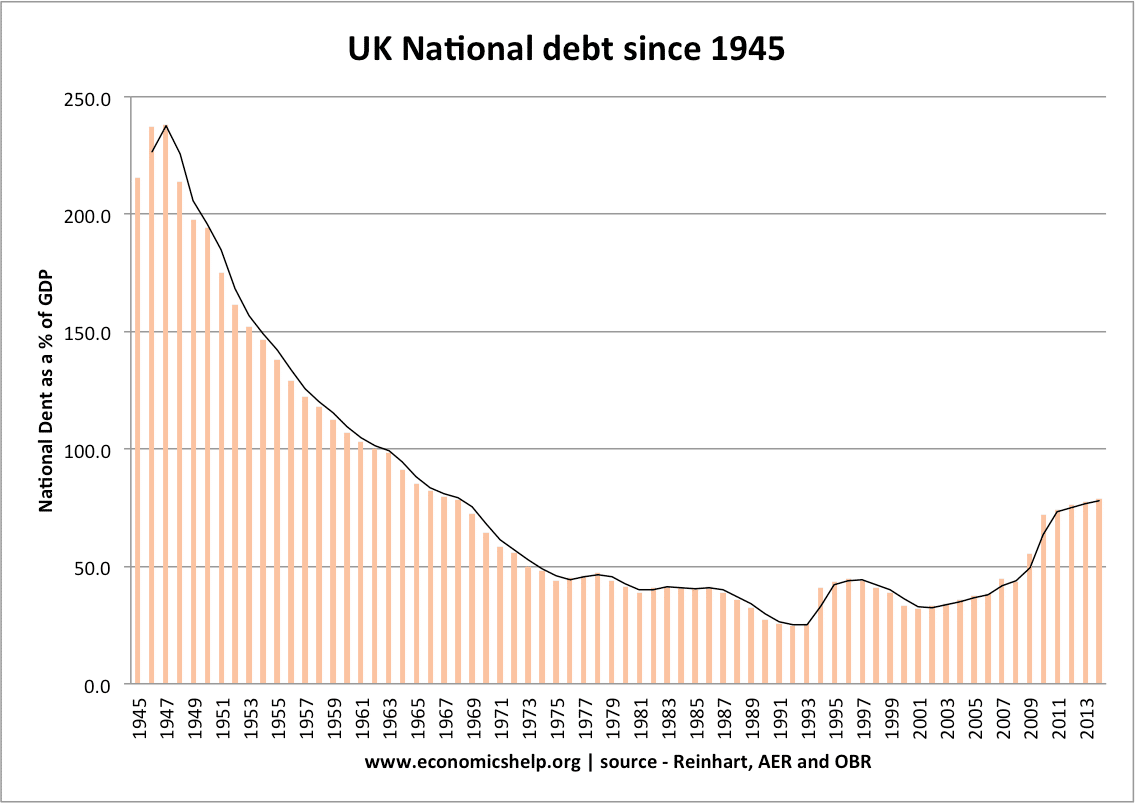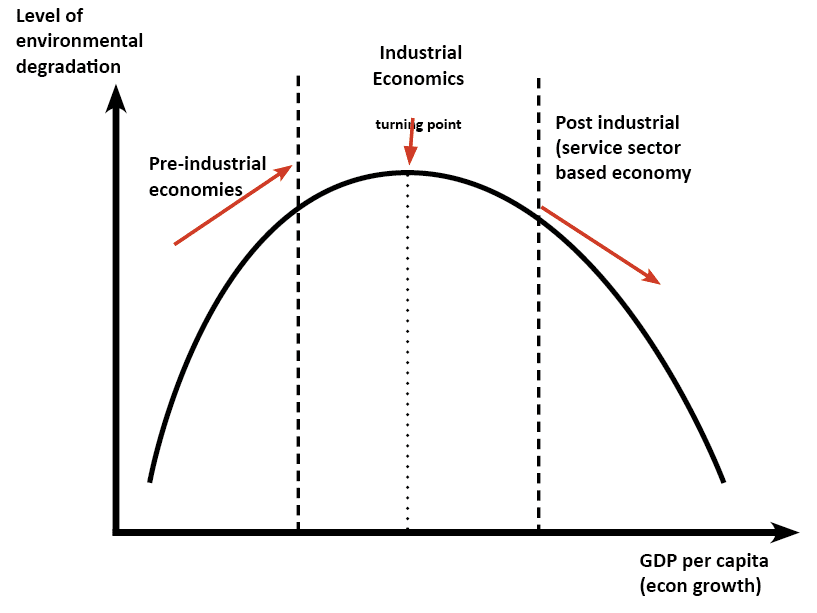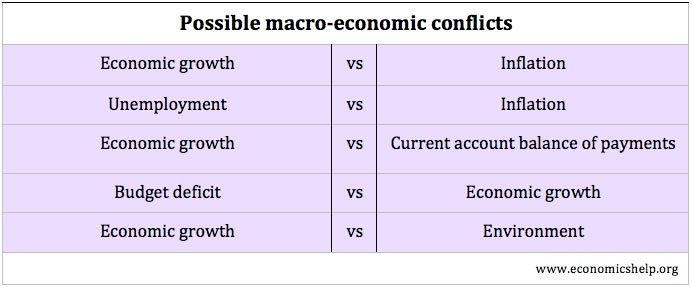Cyclical Unemployment
Definition – Cyclical Unemployment is unemployment due to a period of negative economic growth, or economic slowdown. In a recession, cyclical unemployment will tend to rise sharply. Peaks in unemployment correspond with swings in the economic cycle. Recessions of 1981,1991/92 and 2008/09 Why unemployment rises in a recession If there are fewer orders for goods, …

